- Region
- Vega baja
- Marina Alta
- Marina Baixa
- Alicante
- Baix Vinalopo
- Alto & Mitja Vinalopo
-
ALL TOWNS
- ALICANTE TOWNS
- Albatera
- Alfaz Del Pi
- Alicante City
- Alcoy
- Almoradi
- Benitatxell
- Bigastro
- Benferri
- Benidorm
- Calosa de Segura
- Calpe
- Catral
- Costa Blanca
- Cox
- Daya Vieja
- Denia
- Elche
- Elda
- Granja de Rocamora
- Guardamar del Segura
- Jacarilla
- Los Montesinos
- Orihuela
- Pedreguer
- Pilar de Horadada
- Playa Flamenca
- Quesada
- Rafal
- Redovan
- Rojales
- San Isidro
- Torrevieja
- Comunidad Valenciana
article_detail
Spanish News Today Editors Roundup Weekly Bulletin Feb 10

FEATURE ARTICLES: "Brits travelling to Spain will need an ETIAS permit this year" and "You no longer have to wear a face mask on public transport in Spain"
The biggest news of the week comes not from Spain but from Turkey and Syria, of course, where a series of huge and devastating earthquakes have left an estimated 21,000 people dead and some 75,000 injured, not to mention those who have been left destitute, homeless and mourning. No doubt you’ll have seen the heartbreaking images of the children trapped beneath rubble, and the heroic stories of the brave volunteers risking their own safety to try to help rescue survivors and provide basic necessities during this humanitarian disaster.
If you’d like to help, say authorities in Spain, the best way is to donate money to any one of the multiple local charities that are sending supplies and personnel over to the disaster zone to help. The Red Cross, Cáritas, Unicef, Oxfam, Médecins Sans Frontières… take your pick. You can find a full list of recommended charities and their bank account details here.
Meanwhile, there are travel developments within Spain, with new rules being introduced that everyone should be aware of with regards to Covid-19 measures and a new ‘visa’ system for foreign visitors.
More details below…
Earthquake disaster relief in Turkey and Syria

The devastating series of earthquakes that hit Turkey and Syria at the beginning of the week has stopped the world cold, and as the death toll climbs past 20,000 and the weather continues to worsen, hopes are fading of finding any more survivors amongst the rubble.
The magnitude of the disaster has pulled Europe together and Spain, eager to do its part, deployed two Navy ships and a couple of military planes to the disaster zone on Tuesday.
According to Defence Minister Margarita Robles, the Juan Carlos I and Galicia vessels are carrying “a lot of material” to help in the rescue mission while the aircraft have made their way to the Turkish city of Adana, where the Spanish military base is located.
Volunteer ‘Firefighters without Borders’ from the Region of Murcia and Canine Rescue Units from Andalucia are among the other emergency aid groups who have pledged to help in the disaster zone, travelling to the worst-hit areas immediately to coordinate rescue and relief efforts with charities like Cáritas and the Red Cross.
For us back here at home, we often feel helpless watching images of such distress on the TV and want to do anything we can to alleviate the suffering. The best way you can help, say the experts, is if you make a monetary donation to the charity teams doing work on the ground who need to fund their operations. There are loads of ways to donate, from bank transfers to the far simpler ‘Bizum’ instant payment system used by Spanish banks and even over the phone.
If you want more information about what you can do to help the victims of the earthquakes in Turkey and Syria, you can also call the Spanish emergency hotline for free on 012.
Spain to ask UK holidaymakers to get extra ‘visa’ from 2023
It has been categorically confirmed this week that the ETIAS permit, a type of ‘visa’ people from the UK will need to apply for before travelling to Spain and other EU countries, will be introduced from November of this year.
Similar to the ESTA required for travel to the States, Britons will need to go online and apply for the ‘European Travel Information Authorisation System’ before their holiday and pay a fee of around 7 euros for the permit. Everyone will need the ETIAS by the end of the year, but it’s only those aged between 18 and 70 who will have to pay. It’s valid for three years so can be used over and over during this period.
It’s worth pointing out that EU citizens and permanent residency holders with a residency card won’t need to get an ETIAS as they are already allowed to stay in Spain for longer than 90 days out of 180 days. This new permit is only for non-European holidaymakers.
Once the ETIAS comes into play, UK visitors will have to scan their passport and the permit at the self-service machines at the border, and while people initially feared this process would cause back-ups at the airport, many industry insiders believe the ETIAS will actually speed up non-EU security queues.
In fact, having an ETIAS means that Britons will be able to skip some of the checks they have to go through at the moment since all their information will be available in their ETIAS.
Behind the mask
 Although we’re just approaching carnival time here in Spain, the masks are coming off. The surgical face masks and the FFP2 masks, that is. As of this week, you no longer have to wear this PPE on buses, trains, trams, underground metro trains or on planes. Granted, only about half of people were actually still wearing them anymore on planes to and from Spain, but now it’s official – no one has to.
Although we’re just approaching carnival time here in Spain, the masks are coming off. The surgical face masks and the FFP2 masks, that is. As of this week, you no longer have to wear this PPE on buses, trains, trams, underground metro trains or on planes. Granted, only about half of people were actually still wearing them anymore on planes to and from Spain, but now it’s official – no one has to.While many have rejoiced at the news, some are still saying they will keep wearing a mask anyway, as about 2% of people (not official stats) still do when out and about in shops, at the bank and in the post office, etc. After all, while the government have removed the legal requirement to wear one, they’re still recommending it as a preventative measure, especially for the elderly and those with immune system deficiencies.
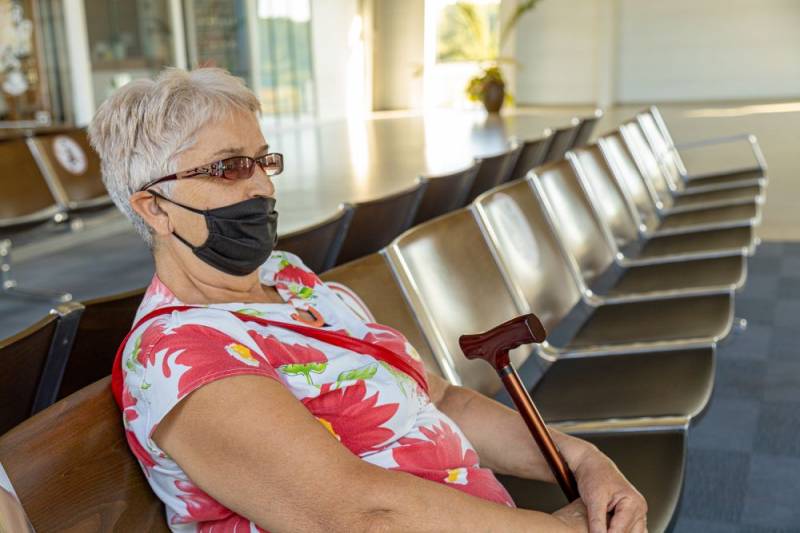 It’s actually a bit weird for a lot of people in Spain to suddenly be able not to wear a mask on the train or on the bus, as it was for many Brits living in Spain who went back to the UK before April of last year and found that they could ‘safely’ remove their masks indoors, back when it was still a legal requirement here in Spain. There are lots of people who are still wearing their mask on public transport, just out of habit. It will obviously take some time to get used to but for now it’s only about half of people who are actually taking their masks off on the bus and on the train.
It’s actually a bit weird for a lot of people in Spain to suddenly be able not to wear a mask on the train or on the bus, as it was for many Brits living in Spain who went back to the UK before April of last year and found that they could ‘safely’ remove their masks indoors, back when it was still a legal requirement here in Spain. There are lots of people who are still wearing their mask on public transport, just out of habit. It will obviously take some time to get used to but for now it’s only about half of people who are actually taking their masks off on the bus and on the train.The government has also relaxed the rules to remove the need to wear a face mask when you go to the opticians’, to a hearing centre or to an orthopaedic centre. They say this is in response to the positive development of the Covid-19 pandemic, which is leaving fewer infections, hospitalisations and fatalities week on week. Sceptics might say it has more to do with the fact we’re in an election year now and people were so fed up of the masks that it was an unavoidable decision.
However, there are still some places in Spain where you have to keep wearing a mask. For good reason, you still have to fully cover your nose and mouth with a face mask when you go to a hospital, health centre, or pharmacy, as well as in care homes for elderly and disabled people and at the dentist (although you have to take it off there anyway for the dentist to look in your mouth).
See all the CORONAVIRUS LATEST NEWS from around Spain
Murcia
Surprise in Cartagena as the City Council reveals that confirmed that vehicles driving through the city centre will categorically NOT need one of the new DGT environmental stickers to pass through Low Emissions Zone. All municipalities in Spain with more than 50,000 inhabitants are being made to set up a Low Emissions Zone this year, a system under which the most polluting cars would be restricted from entering city centre streets during days of high pollution.
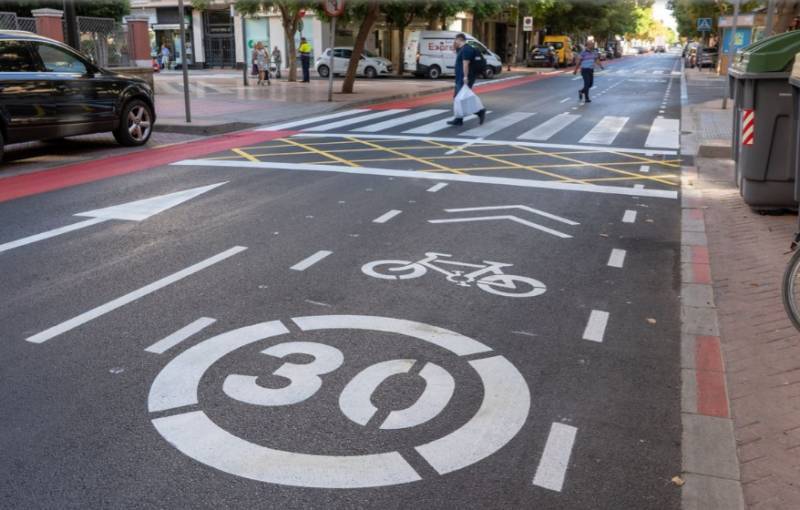
But, in its own interpretation of the rules, Cartagena is insisting that nothing will change for drivers in the city and it will not be necessary for any vehicles to display a sticker. Since much of central Cartagena is pedestrianised already, they say there isn’t actually a big pollution problem so they won’t limit traffic in the two Low Emission Zones that are being created. Instead, they say they prefer to promote their green credentials encouraging more people to use public transport.
In another U-turn, they also confirmed that the opening of the fancy new market and food court being built in the Mercado Gisbert will not be ready for people to go and eat there by the end of 2022 (surprise, surprise), but that the renovation and building work won’t actually be finished until the end of this year, 2023.
 The England Veterans Football Club Over-55s team were in Murcia last weekend for a mini ‘Spain tour’, and played against Club Deportivo at La Manga Club Resort and against FC Cartagena at the Estadio Cartagonova. The first match they won 8-3, but lost the second 7-1, ostensibly because FC Cartagena fielded a significantly younger team that didn’t quite seem to meet the standards of fair play and sportsmanship. Still, the England side, which is made up of former professionals with league and non-league sides in the UK, sent their thanks to the match officials and to the organisers of the matches, and assured they thoroughly enjoyed their time in Spain.
The England Veterans Football Club Over-55s team were in Murcia last weekend for a mini ‘Spain tour’, and played against Club Deportivo at La Manga Club Resort and against FC Cartagena at the Estadio Cartagonova. The first match they won 8-3, but lost the second 7-1, ostensibly because FC Cartagena fielded a significantly younger team that didn’t quite seem to meet the standards of fair play and sportsmanship. Still, the England side, which is made up of former professionals with league and non-league sides in the UK, sent their thanks to the match officials and to the organisers of the matches, and assured they thoroughly enjoyed their time in Spain.Another way to enjoy your time in the Region of Murcia is with a nice stroll along the 7.1-kilometre coastal path along the isolated and unspoilt coves of Bolnuevo in Mazarrón, a trail which has just been awarded the prestigious “Sendero Azul” status in recognition of its environmental significance and its role in promoting the preservation of the natural environment.
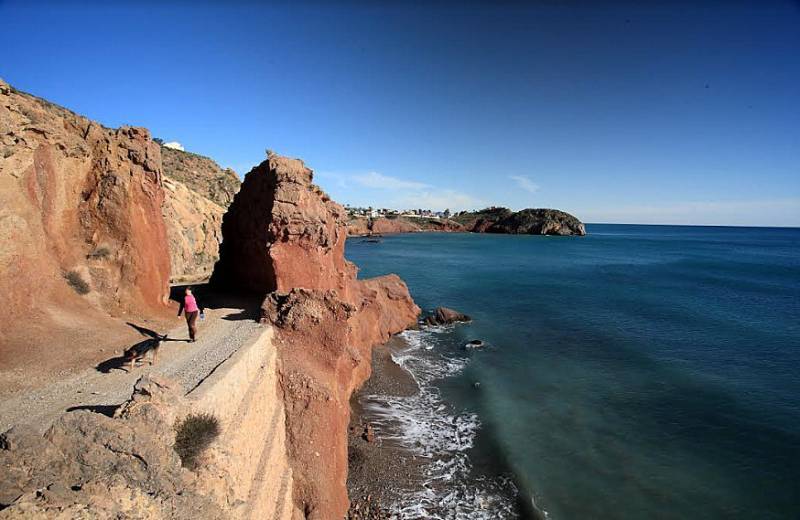
The route starts from the main beach of Bolnuevo before turning inland into the protected area of the Sierra de las Moreras, and providing a view of some of the gorgeous protected islets of the Mediterranean and the ‘gredas’, the astounding natural wind-eroded rock structures that seem like they’re out of this world. If you ever get the chance it’s well worth a walk along this coastal way, though maybe not this weekend as the weather’s not really right for it.
If you are stuck for something to do over the next few days, check out our EVENTS DIARY for all the happenings coming up soon in the Murcia and Alicante areas:
Spain
Spain’s government is in hot water with the EU over the extraordinary tax on big banks and electricity companies it approved at the end of last year. The European Commission is studying the possibility of beginning an infringement procedure against the Spanish authorities, claiming that the charges could contravene EU law.
The ‘non-tax public patrimonial benefit’, as it is known in Spain, has set a tax rate of 4.8% on the interest margin and commissions charged by the banking and energy sectors. The levy is an attempt to collect 3 billion euros over the next two years, since these institutions are benefiting greatly from the steep rise in interest rates. The funds raised from the tax, the government has explained, will be used to ease the burden on those most affected by the war in Ukraine and the escalation of inflation.
The point that’s causing all the controversy is that the Spanish government won’t allow the banks and other big companies pass on the extra costs to their customers, something which the European Central Bank (ECB) has already warned could be against the law.
Those at the receiving end of the taxes have already taken the matter to the Spanish courts who are likely to freeze the proceedings until Europe makes a call, which means the issue could drag on for a decade or more.
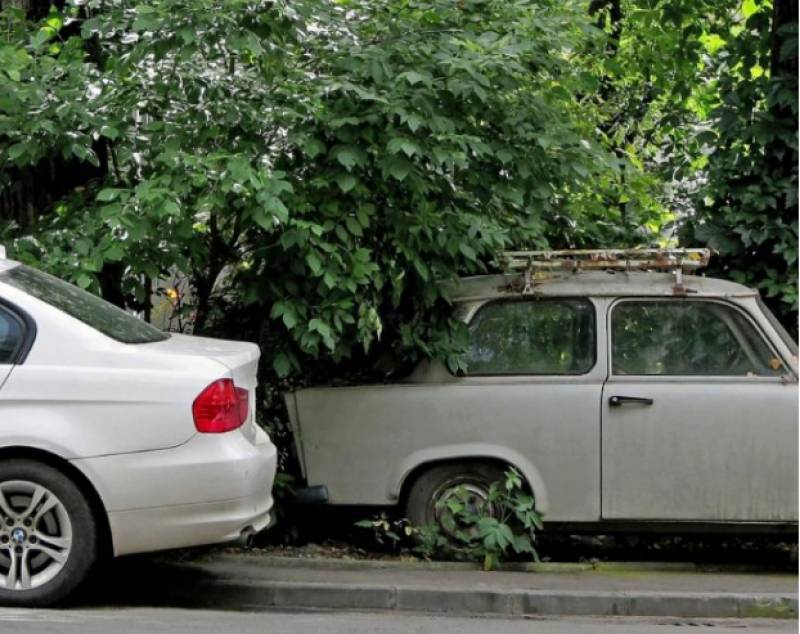 Spanish traffic authorities have ramped up their action on abandoned cars and have amended a couple of laws to make removing them more straight-forward. Every year about 50,000 vehicles are simply parked up by the side of the road or in car parks and left there to rust by their owners, creating an unsightly mess and reducing the number of spaces available.
Spanish traffic authorities have ramped up their action on abandoned cars and have amended a couple of laws to make removing them more straight-forward. Every year about 50,000 vehicles are simply parked up by the side of the road or in car parks and left there to rust by their owners, creating an unsightly mess and reducing the number of spaces available.Now, a change in the wording of Article 106 means that if a vehicle has been left on a public street or road for more than two months without being moved, it can be towed by the local authorities and scrapped. In addition, cars that show obvious signs of damage or breakdown, or those without licence plates, can be destroyed after just one month.
Finally this week, a trio of 22-year-olds have pulled off the heist of the century and scammed online retail giant Amazon out of hundreds of thousands of euros. The plan was brilliant in its simplicity: first, the Spanish youngsters would advertise high-end electronics on social media for a knock-down price and once a customer was hooked, they would order the product from Amazon and arrange for it to be shipped directly to the buyer.
 A few days later the real scam began when the fraudsters would report to Amazon that the product was defective and ask for a refund. The online retailer sent them a code to be scanned at the Post Office when they returned the goods. All sounds legit so far, but rather than shipping the expensive item back to Amazon the youngsters filled the packages with marbles, pens and other junk instead.
A few days later the real scam began when the fraudsters would report to Amazon that the product was defective and ask for a refund. The online retailer sent them a code to be scanned at the Post Office when they returned the goods. All sounds legit so far, but rather than shipping the expensive item back to Amazon the youngsters filled the packages with marbles, pens and other junk instead.The successful scam, carried out more than 200 times between 2017 and 2019, highlighted a very big flaw in Amazon’s returns policy and netted the three men around 350,000 euros in all. The Mallorca boys plead guilty to aggravated fraud in court and were sentenced to 12 months in jail and each fined 1,080 euros for committing the biggest scam against online giant Amazon in Europe.
Incredibly, one of the three convicted youths has offered to work with Amazon to help the company patch the breaches in its security systems.
Alicante
With demand for hospital treatment in the UK outstripping capacity even before Covid, according to NHS England, it’s no surprise that the demands of delivering care post-pandemic when non-urgent and other medical treatments were suspended have led to significant backlogs and longer waits for patients.
In what is likely to be welcome news for thousands, British patients on these lengthy hospital waiting lists will now be offered care in Alicante following an international agreement between Spanish hospital group Vithas and Operations Abroad.
The collaboration between the private hospital group and the international healthcare company that arranges medical treatment abroad will mean a wide range of medical care and services will be opened up to UK patients here in Spain, including surgical specialties and follow-ups.
Patients will be accompanied by personal health advisors before, during and after treatment, assures Operations Abroad, which has a network of 80 hospitals in 40 countries around the world. More than 65,000 patients use the network’s services.
The company “facilitates the administrative procedures and medical insurance with each national health system and offers estimates so that the patient living abroad has a prior economic estimate of what the cost of their treatment may entail”.
Vithas, on the other hand, is made up of 19 hospitals and 31 medical and care centres in 13 Spanish provinces.
 Meanwhile, a British expat has completed a mammoth challenge to help sick, abandoned and neglected animals in Alicante, trekking 240km to raise more than 10,000 euros for Benissa’s Akira Animal Sanctuary.
Meanwhile, a British expat has completed a mammoth challenge to help sick, abandoned and neglected animals in Alicante, trekking 240km to raise more than 10,000 euros for Benissa’s Akira Animal Sanctuary.Dog lover Lee Harker hiked from Moraira to Valencia and back in six days after hearing about Akira’s plans to build a costly exercise and rehabiliation centre for animals at the sanctuary. He set himself the ambitious target of raising 10,000 euros and, through a GoFundMe page, pulled in more than 200 donations and an extra 350 euros.
“It was six days of hard work and harsh for my body, but in the end, it’s only six days. Some people and some animals have to tolerate much worse pain and hardship than that and for a much longer period of time,” said Lee.
If hiking is your thing and you love the outdoors, then why not explore one of the region’s incredible must-see canyons? When it comes to spectacular canyons carved over millions of years resulting in spectacular gorges and rock formations, most of us understandably cast our minds to northern Arizona, home to the famous Grand Canyon.
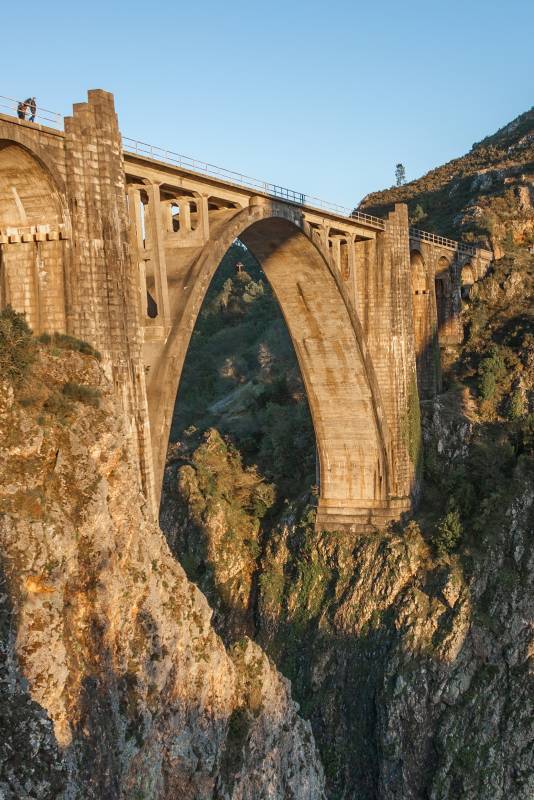 However, there are also natural spots of this kind closer to home, albeit on a smaller scale, that are also definitely worth visiting. The provinces of Alicante, Valencia and Castellón boast a wealth of unique landscapes, many of which are not so well known to the general public.
However, there are also natural spots of this kind closer to home, albeit on a smaller scale, that are also definitely worth visiting. The provinces of Alicante, Valencia and Castellón boast a wealth of unique landscapes, many of which are not so well known to the general public.Altea is one of the most charming and beautiful towns in the province of Alicante and is home to the Mascarat gorge, a ravine that separates the municipality from Calpe. On this 2km route, hikers can walk between imposing but truly stunning walls that are more than 100 metres high and only one metre apart in places.
Alternatively, you can visit Valencia province and explore the Turia canyons and the hanging bridges of Chulilla. The province is also home to the canyons of the river Júcar, a breathtaking landscape located between Jalance and Cofrentes.
Andalucía
Six British citizens were arrested on the Costa del Sol earlier this week, suspected of being behind a contracted hit on three Irish men in Malaga last September. The British members of the criminal gang are charged with the assassination attempt that left one 24-year-old man shot and seriously injured. All three victims in the case have links to Dublin gangster Mr Flashy, and the contract killing is thought to be a settling of scores over some gangland squabble.
The six suspects were filmed being taken down simultaneously at four separate properties in Marbella, Estepona, Fuengirola and Coín, with one of the men aiming a weapon at the Spanish police who burst through the door. He only dropped the gun and surrendered when the officers fired several warning shots.
🚔La @policia detiene a 6 miembros de una organización criminal por el intento de asesinato de 3 personas en el Lago de las #Tortuga.
— Subdelegación del Gobierno en Málaga (@GobiernoMalaga) February 8, 2023
➡️Se desplazaron desde el extranjero hasta #Marbella #Málaga para saldar cuentas.
➡️Intervenidas 4 pistolas y varias armas más. pic.twitter.com/ORCMoppud2
In their raid, police found four pistols, a revolver, an ominous-sounding ‘weapon of war’, several machetes, an axe, a bulletproof vest, a ski mask, handcuffs, ammunition and various other effects.
Spanish police now consider the case solved.
Maybe it’s not for nothing that more expats looking to buy property in the south of Spain are moving just along the coast to the relatively quieter province of Granada. It doesn’t have quite the same prestige as the Costa del Sol, but the beaches are just as good, there’s plenty of history and culture in its cities and old hilltop towns, and (perhaps best of all) property prices are decidedly more affordable.
And it’s hardly a backwater with nothing there. It has everything an expat or visitor could want and expects from modern living. It’s just that it’s not as well known as it’s neighbouring provinces of Malaga and Almeria.
From Granada city, with its famed historical wonder the Alhambra Palace and fortress and the iconic and ancient Barrio Albaicín neighbourhood, to the beach resorts of Almuñécar and Motril just a short drive from the popular Malaga tourist towns of Nerja and Torrox, people looking for that longed-for home in the sun are increasingly finding that Granada has it all.
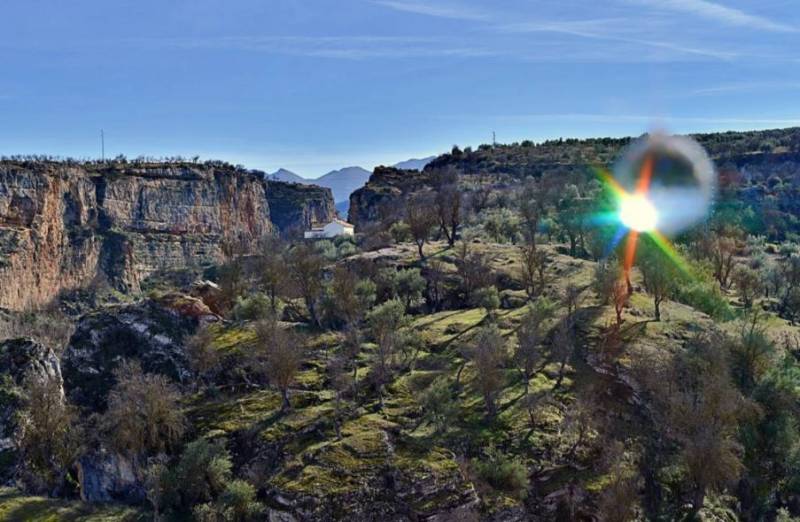
You may have missed…
- Lyme disease spreads unchecked across Spain.
Lyme disease, an infection caused by tick bites and one with very few specialists qualified to treat it, has spread rapidly in recent years from a few isolated cases to most regions in Spain. - In images: Spectacular snowfall in the Region of Murcia this week.
There was a spectacularly heavy snowfall this week in Caravaca de la Cruz, Moratalla and the Sierra Espuña. - Spain officially approves Animal Welfare Law but excludes hunting dogs.
In the end, the government came down on the side of the hunters and has decided to exclude all working dogs from the parameters of the Animal Welfare Law. - Ban on smoking outside bars may be made permanent in Valencia region.
The president of the Generalitat Valenciana, Ximo Puig, is considering whether the ban on smoking on the terraces of bars and cafés in the Valencia region, a measure which was originally introduced to reduce Covid-19 infections, should be made permanent. - Spanish people have the most satisfying sex lives of anyone in Europe.
A survey by Ipsos has found that 72% of Spaniards feel satisfied with their sexual relationships, while 82% say they feel loved, making Spain the European country with the highest degree of satisfaction in terms of sex life and love life.
And on that note, we’re signing off for another week. Thanks as ever for reading and we’ll be back next week.
¡Hasta luego!
Contact Murcia Today: Editorial 000 000 000 /
Office 000 000 000


















